






Parkdale Center
Verified Center
This provider's information has been quality-checked by Recovery.com's Research Team for accuracy and completeness, including center verification through appropriate third-party organizations.
Treatment Focus
This center treats substance use disorders and mental health conditions. You'll receive individualized care catered to your unique situation and diagnosis, learn practical skills for recovery, and make new connections in a restorative environment.
Primary Level of Care
Offering intensive care with 24/7 monitoring, residential treatment is typically 30 days and can cover multiple levels of care. Length can range from 14 to 90 days typically.
Treatment Focus
This center treats substance use disorders and mental health conditions. You'll receive individualized care catered to your unique situation and diagnosis, learn practical skills for recovery, and make new connections in a restorative environment.
Primary Level of Care
Offering intensive care with 24/7 monitoring, residential treatment is typically 30 days and can cover multiple levels of care. Length can range from 14 to 90 days typically.
Provider's Policy
Parkdale Center is happy to work with your private insurance provider to help you get the most benefit from your plan. Unfortunately, we do not accept federal nor state insurances such as Medicaid or HIP.
Parkdale Center
Parkdale Center
About Parkdale Center
Parkdale Center for Professionals offers a comprehensive approach to addiction and dual diagnosis treatment, using personalized, evidence-based strategies. Their services include a day treatment program with options for short-term residential accommodation, an intensive outpatient program (IOP), telehealth aftercare, withdrawal management and career reentry services. They address addiction and mental health issues simultaneously, focusing on discovering underlying causes in order to foster true recovery.
For Professionals, By Professionals
Parkdale Center for Professionals caters their treatment to professionals' specific needs and lifestyles, including healthcare professionals, lawyers, pilots, educators, contractors, and many more. They offer confidential, high-quality medical and psychological care and allow cellphone and laptop use to accommodate business needs. Parkdale Center for Professionals starts treatment with an in-depth psychiatric and medical evaluation to identify the most effective therapies and the right level of care for each client. While they do not offer detox, they offer withdrawal management through medications, psychiatric care, and comfort monitoring, as needed.
Talented Staff Providing Evidence-Based Care
Parkdale Center for Professionals has a robust team of professionals: nurses, medical doctors, addiction counselors, a psychiatrist, and a psychologist. Practitioners collaborate to create a detailed and tailored plan for each client’s recovery. Their programs center heavily on group therapy, however, individual therapy will be included when necessary. The therapies used include cognitive behavioral therapy (CBT), dialectical behavioral therapy (DBT), eye movement desensitization and reprocessing (EMDR), acceptance and commitment therapy (ACT), rational emotive behavioral therapy (REBT), and motivational interviewing techniques. Parkdale Center for Professionals also provides anger management groups, on and off-site 12-Step meetings, alternative peer support meetings, and specialized peer groups for nurses and doctors. They encourage family involvement in recovery with family screening to understand family dynamics and weekly virtual support meetings.
Multiple Treatment Levels
Clients attend Parkdale Center for Professionals’s day treatment program 5 days a week for a minimum of 3 hours per day. Parkdale Center for Professionals offers residential housing for their day treatment clients, with shared bedrooms, a gym membership, and a kitchen clients can use anytime. Their IOP offers 9 hours of therapy each week. Their telehealth services provide accessible counseling, psychological care, and accountability for clients, regardless of their location. Parkdale Center for Professionals works with regulatory agencies and professional monitoring agencies to help healthcare providers successfully reintegrate into the workforce.

Highlights from the Center
Highlights
These highlights are provided by and paid for by the center.
Co-Occurring Disorders Treatment
Perfect for Professionals
Lakeside
Executive Treatment
Center Overview
Treatment Focus
This center treats substance use disorders and mental health conditions. You'll receive individualized care catered to your unique situation and diagnosis, learn practical skills for recovery, and make new connections in a restorative environment.
CARF Accredited
CARF stands for the Commission on Accreditation of Rehabilitation Facilities. It's an independent, non-profit organization that provides accreditation services for a variety of healthcare services. To be accredited means that the program meets their standards for quality, effectiveness, and person-centered care.
Insurance Accepted
Cash Pay Rates
Estimated Cash Pay Rate
Center pricing can vary based on program and length of stay. Contact the center for more information. Recovery.com strives for price transparency so you can make an informed decision.
Meet Your Care Team

Rodrigo Garcia
Founder, Chief Executive Officer
MSN, CRNA, MBA

Claudia Garcia
Founder, Chief Operating Officer
MBA, BSN, RN, CADAC II, LAC

Dr. David Cummins
Founder, Medical Director
MD, FASAM

Scott Geans
Chief Financial Officer

Jasmine Dixon
Program Director
LMHC

Dr. Christine Paquin
Psychiatric Clinical Nurse Specialist
DNP, RN, PMHCNS-BC
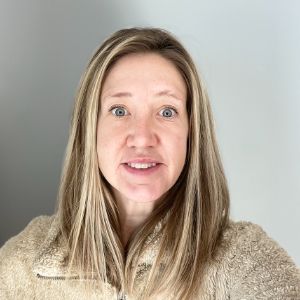
Kim Minich
Nurse Practitioner
DNP, FNP-C, RN
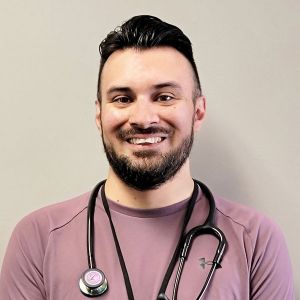
David Estrada
Case Worker
BSN, RN

Christian Gabrano
Program Lead
CADAC II

Alice Olson
LCAC, LMHC, CCTP
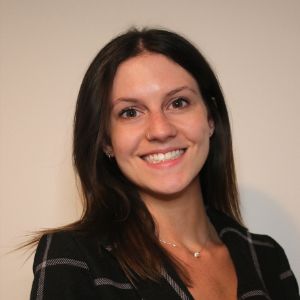
Allie Ordziejewski
MA, LMHC-A, NCC

Tye Dominguez
LCACA, LMHCA, NCC
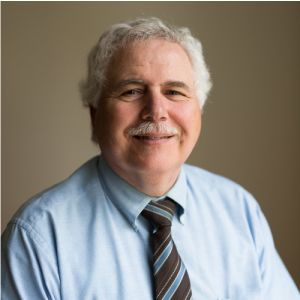
Dr. Stan Lelek
Psychologist
PsyD, HSPP
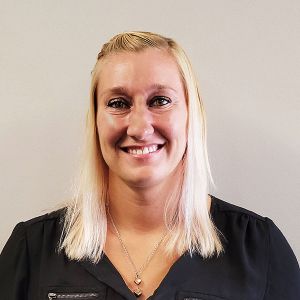
Kathryn Crook
Recovery Specialist
MA, MS

Michael Goodman
Recovery Specialist
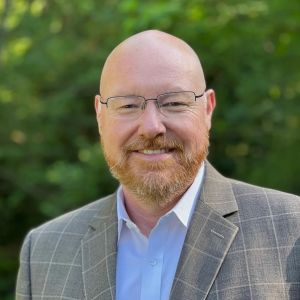
Dr. Jeffery Coto
Chief Compliance Officer
DNP, MS-CNS, RN, NPD-BC, CCRN, CPCO
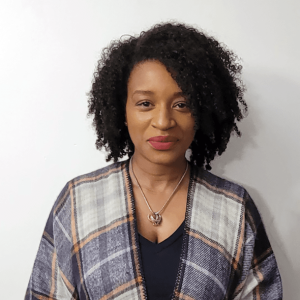
LaShania Odds-Ellison
Executive Assistant

Mo Vear
Community Outreach Director

Tori Smits
Licensed Social Worker
LSW
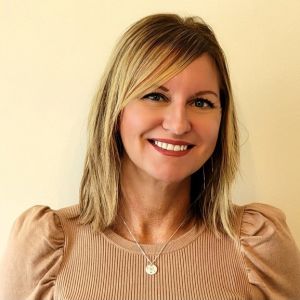
Donna Todorovich
Licensed Mental Health Counselor
LMHCA

Julie Rice
Healthcare Professionals Advocate
BA, CADAC

April Gilman
Practice Manager

Melissa Fulk
Billing Associate
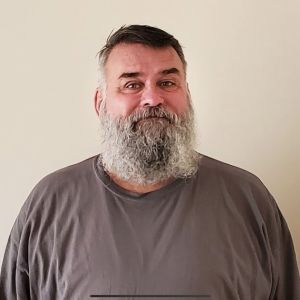
John Woods
Property Manager




Levels of Care








Your Care Options
Specializations
Alcohol
Using alcohol as a coping mechanism, or drinking excessively throughout the week, signals an alcohol use disorder.
Co-Occurring Disorders
A person with multiple mental health diagnoses, such as addiction and depression, has co-occurring disorders also called dual diagnosis.
Depression
Symptoms of depression may include fatigue, a sense of numbness, and loss of interest in activities. This condition can range from mild to severe.
Drug Addiction
Drug addiction is the excessive and repetitive use of substances, despite harmful consequences to a person's life, health, and relationships.
Executives
Executive treatment programs typically directly support the needs of people who manage businesses and may provide flexible schedules and office space to allow work during treatment.
Heroin
Heroin is a highly addictive and illegal opioid. It can cause insomnia, collapsed veins, heart issues, and additional mental health issues.
Opioids
Opioids produce pain-relief and euphoria, which can lead to addiction. This class of drugs includes prescribed medication and the illegal drug heroin.
Professionals
Busy, high-ranking professionals get the personalized treatment they need with greater accommodations for work, privacy, and outside communication.
Who We Treat
Older Adults
Addiction and mental health treatment caters to adults 55+ and the age-specific challenges that can come with recovery, wellness, and overall happiness.
Executives
Executive treatment programs typically directly support the needs of people who manage businesses and may provide flexible schedules and office space to allow work during treatment.
Young Adults
Emerging adults ages 18-25 receive treatment catered to the unique challenges of early adulthood, like college, risky behaviors, and vocational struggles.
Men and Women
Men and women attend treatment for addiction in a co-ed setting, going to therapy groups together to share experiences, struggles, and successes.
Professionals
Busy, high-ranking professionals get the personalized treatment they need with greater accommodations for work, privacy, and outside communication.
Approaches
Evidence-Based
A combination of scientifically rooted therapies and treatments make up evidence-based care, defined by their measured and proven results.
Family Involvement
Providers involve family in the treatment of their loved one through family therapy, visits, or both–because addiction is a family disease.
Holistic
A non-medicinal, wellness-focused approach that aims to align the mind, body, and spirit for deep and lasting healing.
Individual Treatment
Individual care meets the needs of each patient, using personalized treatment to provide them the most relevant care and greatest chance of success.
Twelve Step
Incorporating spirituality, community, and responsibility, 12-Step philosophies prioritize the guidance of a Higher Power and a continuation of 12-Step practices.
Therapies
1-on-1 Counseling
Patient and therapist meet 1-on-1 to work through difficult emotions and behavioral challenges in a personal, private setting.
Meditation & Mindfulness
A practiced state of mind that brings patients to the present. It allows them to become fully aware of themselves, their feelings, and the present moment.
Online Therapy
Patients can connect with a therapist via videochat, messaging, email, or phone. Remote therapy makes treatment more accessible.
Art Therapy
Visual art invites patients to examine the emotions within their work, focusing on the process of creativity and its gentle therapeutic power.
Expressive Arts
Creative processes like art, writing, or dance use inner creative desires to help boost confidence, emotional growth, and initiate change.
Eye Movement Therapy (EMDR)
Lateral, guided eye movements help reduce the emotional reactions of retelling and reprocessing trauma, allowing intense feelings to dissipate.
Family Therapy
Family therapy addresses group dynamics within a family system, with a focus on improving communication and interrupting unhealthy relationship patterns.
Conditions We Treat
Personality Disorders
Personality disorders destabilize the way a person thinks, feels, and behaves. If untreated, they can undermine relationships and lead to severe distress.
ADHD, ADD
ADHD is a common mental health condition caused by dopamine imbalance. Common symptoms include inattention, hyperactivitiy, and impulsivity.
Anger
Although anger itself isn't a disorder, it can get out of hand. If this feeling interferes with your relationships and daily functioning, treatment can help.
Anxiety
Anxiety is a common mental health condition that can include excessive worry, panic attacks, physical tension, and increased blood pressure.
Bipolar
This mental health condition is characterized by extreme mood swings between depression, mania, and remission.
Burnout
Burnout entails mental and physical exhaustion, and leads to a severe lack of fulfillment. This condition is often caused by overwork.
Depression
Symptoms of depression may include fatigue, a sense of numbness, and loss of interest in activities. This condition can range from mild to severe.
Gambling
Excessive, repetitive gambling causes financial and interpersonal problems. This addiction can interfere with work, friendships, and familial relationships.
Post Traumatic Stress Disorder
PTSD is a long-term mental health issue caused by a disturbing event or events. Symptoms include anxiety, dissociation, flashbacks, and intrusive thoughts.
Substances We Treat
Alcohol
Using alcohol as a coping mechanism, or drinking excessively throughout the week, signals an alcohol use disorder.
Benzodiazepines
Benzodiazepines are prescribed to treat anxiety and sleep issues. They are highly habit forming, and their abuse can cause mood changes and poor judgement.
Co-Occurring Disorders
A person with multiple mental health diagnoses, such as addiction and depression, has co-occurring disorders also called dual diagnosis.
Cocaine
Cocaine is a stimulant with euphoric effects. Agitation, muscle ticks, psychosis, and heart issues are common symptoms of cocaine abuse.
Drug Addiction
Drug addiction is the excessive and repetitive use of substances, despite harmful consequences to a person's life, health, and relationships.
Ecstasy
Ecstasy is a stimulant that causes intense euphoria and heightened awareness. Abuse of this drug can trigger depression, insomnia, and memory problems.
Heroin
Heroin is a highly addictive and illegal opioid. It can cause insomnia, collapsed veins, heart issues, and additional mental health issues.
Methamphetamine
Methamphetamine, or meth, increases energy, agitation, and paranoia. Long-term use can result in severe physical and mental health issues.
Languages
Aftercare
Care Designed for Your Needs
Personal Amenities
Amenities
Special Considerations
Executive Program
Addiction and mental health treatment for executives typically involves high discretion, greater technology access, and more private, 1-on-1 care.
Flexible technology policies
Centers with flexible technology policies allow professionals to stay in touch with work and give patients a greater sense of connection and normalcy.






